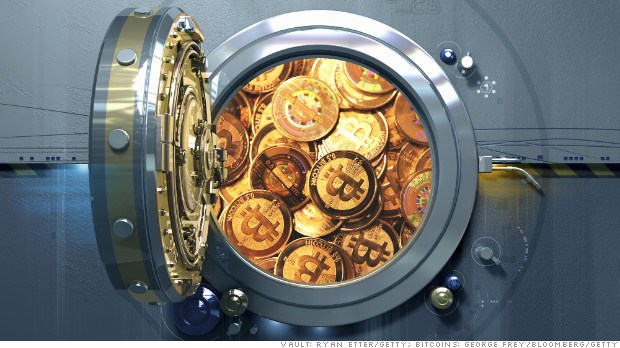Has Bitcoin Replaced Gold As The New Safe Haven?
A couple of years ago, I was lucky enough to be given the opportunity to coach a high school debate team. One of the first things that those smart kids learned when it came to attacking an opponent’s case was to, where appropriate, point out that correlation does not necessarily equal causation. Just because two things happen at the same time doesn’t mean they are related. Sometimes, though, even if evidence is scant, the logical case for causation can be strong enough to be noteworthy.
As the charts below show, on June 12th of this year, the beginning point for each chart, two financial markets started to move dramatically in opposite directions. That day marked the high in the Chinese stock market; the day the collapse began. Over the next month or so the Shanghai Composite Index lost close to 30 percent.

On the same day another, seemingly unrelated market, BTC/USD began to climb off of the lows where it had been languishing, at around $230. Over the next month or so Bitcoin’s value appreciated around 30 percent and once the Shanghai composite stabilized somewhat, so did Bitcoin … spooky, isn’t it?

Of course, that timescale also coincides to some extent with the Greek crisis once again rearing its ugly head. That was the most common reason given at the time for Bitcoin’s rise but, as I said at the time, there was no evidence of any increase in the volume of BTC/EUR traded. That and the fact that Greeks had no access to their money at the time suggested that there was very little direct buying by Greeks or other Europeans. The talk of Greece returning to the Drachma and inflating their way out of trouble, however, exposed one of the dangers of fiat currency in general for the ordinary consumer and saver, and would have made the whole idea of Bitcoin more attractive.
The situation in Greece and the collapse of the Chinese stock market weren’t related, but in Bitcoin terms they really were two sides of the same (virtual) coin. Both resulted in people losing confidence in the traditional, mainstream financial markets and instruments. In the past, even the recent past, the response of those who saw the exposed weakness in conventional market instruments and were concerned would have been to buy gold. An 8 year chart for gold shows that that was the response to the events of 2008/9 – a bull run on gold that took it all the way to around $1200.

As fears grew that the EU was about to fall apart, and that Chinese stocks were in a full meltdown, however, gold continued its recent decline.
We can see that a) In the past gold has soared in times of financial crisis; b) Confidence in both the Euro and Chinese stocks fell at the same time in June; c) at the same time the price of gold was falling; and d) at that time the price of Bitcoin was increasing. Logically, all of that suggests that Bitcoin has replaced gold as the safe haven of choice in times of trouble.
This is the point where the warning about correlation not necessarily equaling causation comes into play. There is simply not enough evidence to draw a broad conclusion such as that, but it does raise a couple of interesting questions. If Bitcoin had been at the current level of maturity when the financial crisis came, how would it have reacted, and how will it react when the next global recession comes? It seems to me that while the case for Bitcoin as a safe haven isn’t proven, there is enough evidence to make owning some as insurance against the inevitability of another recession a smart move.

